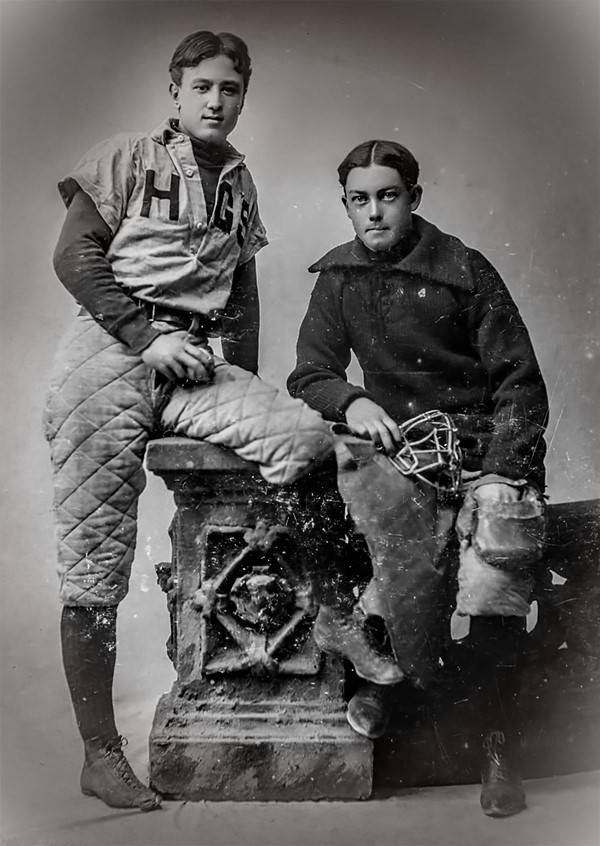|
Crossing The Bar
"Crossing the Bar" is an 1889 poem by Alfred, Lord Tennyson. It is considered that Tennyson wrote it in elegy; the narrator uses an extended metaphor to compare death with crossing the "sandbar" between the river of life, with its outgoing "flood", and the ocean that lies beyond death, the "boundless deep", to which we return. Overview Tennyson is believed to have written the poem (after suffering a serious illness) while on the sea, crossing the Solent from Aldworth to Farringford on the Isle of Wight. Separately, it has been suggested he may have written it on a yacht anchored in Salcombe, where there is a moaning sandbar. "The words", he said, "came in a moment".Hill, Robert W., Jr., ed. (1971). ''Tennyson's poetry; authoritative texts, juvenilia and early responses, criticism''. New York:W. W. Norton & Company. . Shortly before he died, Tennyson told his son Hallam to "put 'Crossing the Bar' at the end of all editions of my poems". The poem contains four stanzas that gener ... [...More Info...] [...Related Items...] OR: [Wikipedia] [Google] [Baidu] |
Alfred, Lord Tennyson
Alfred Tennyson, 1st Baron Tennyson (6 August 1809 – 6 October 1892) was an English poet. He was the Poet Laureate during much of Queen Victoria's reign. In 1829, Tennyson was awarded the Chancellor's Gold Medal at Cambridge for one of his first pieces, "Timbuktu". He published his first solo collection of poems, ''Poems, Chiefly Lyrical'', in 1830. "Claribel" and "Mariana", which remain some of Tennyson's most celebrated poems, were included in this volume. Although described by some critics as overly sentimental, his verse soon proved popular and brought Tennyson to the attention of well-known writers of the day, including Samuel Taylor Coleridge. Tennyson's early poetry, with its medievalism and powerful visual imagery, was a major influence on the Pre-Raphaelite Brotherhood. Tennyson also excelled at short lyrics, such as "Break, Break, Break", "The Charge of the Light Brigade", "Tears, Idle Tears", and "Crossing the Bar". Much of his verse was based on classical mytho ... [...More Info...] [...Related Items...] OR: [Wikipedia] [Google] [Baidu] |
Charles Ives
Charles Edward Ives (; October 20, 1874May 19, 1954) was an American modernist composer, one of the first American composers of international renown. His music was largely ignored during his early career, and many of his works went unperformed for many years. Later in life, the quality of his music was publicly recognized through the efforts of contemporaries like Henry Cowell and Lou Harrison, and he came to be regarded as an "American original". He was also among the first composers to engage in a systematic program of experimental music, with musical techniques including polytonality, polyrhythm, tone clusters, aleatory elements, and quarter tones. His experimentation foreshadowed many musical innovations that were later more widely adopted during the 20th century. Hence, he is often regarded as the leading American composer of art music of the 20th century. Sources of Ives's tonal imagery included hymn tunes and traditional songs; he also incorporated melodies of the tow ... [...More Info...] [...Related Items...] OR: [Wikipedia] [Google] [Baidu] |
British Poems
British may refer to: Peoples, culture, and language * British people, nationals or natives of the United Kingdom, British Overseas Territories, and Crown Dependencies. ** Britishness, the British identity and common culture * British English, the English language as spoken and written in the United Kingdom or, more broadly, throughout the British Isles * Celtic Britons, an ancient ethno-linguistic group * Brittonic languages, a branch of the Insular Celtic language family (formerly called British) ** Common Brittonic, an ancient language Other uses *''Brit(ish)'', a 2018 memoir by Afua Hirsch *People or things associated with: ** Great Britain, an island ** United Kingdom, a sovereign state ** Kingdom of Great Britain (1707–1800) ** United Kingdom of Great Britain and Ireland (1801–1922) See also * Terminology of the British Isles * Alternative names for the British * English (other) * Britannic (other) * British Isles * Brit (other) * Briton (d ... [...More Info...] [...Related Items...] OR: [Wikipedia] [Google] [Baidu] |
Poetry By Alfred, Lord Tennyson
Poetry (derived from the Greek ''poiesis'', "making"), also called verse, is a form of literature that uses aesthetic and often rhythmic qualities of language − such as phonaesthetics, sound symbolism, and metre − to evoke meanings in addition to, or in place of, a prosaic ostensible meaning. A poem is a literary composition, written by a poet, using this principle. Poetry has a long and varied history, evolving differentially across the globe. It dates back at least to prehistoric times with hunting poetry in Africa and to panegyric and elegiac court poetry of the empires of the Nile, Niger, and Volta River valleys. Some of the earliest written poetry in Africa occurs among the Pyramid Texts written during the 25th century BCE. The earliest surviving Western Asian epic poetry, the ''Epic of Gilgamesh'', was written in Sumerian. Early poems in the Eurasian continent evolved from folk songs such as the Chinese ''Shijing'', as well as religious hymns (the Sanskrit ''R ... [...More Info...] [...Related Items...] OR: [Wikipedia] [Google] [Baidu] |


.jpg)